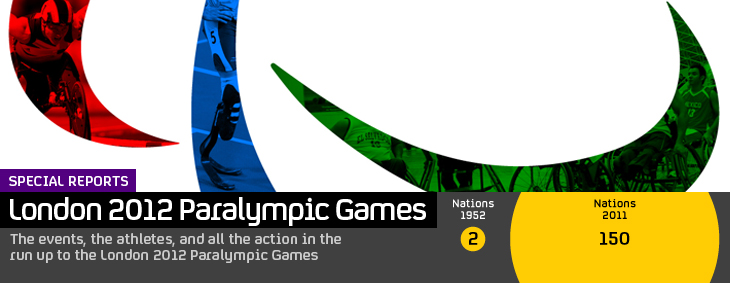Paralympic archive: sailing the world (1981)
In March 1981, ITN went to meet paraplegics Elizabeth and Peter Fordred as they prepared to sail the world – in a boat they had built themselves in landlocked Zimbabwe.
Despite their disabilities, paraplegics Elizabeth and Peter Fordred were obsessed with the idea of sailing round the world, writes Ian Searcey.
In March 1981, after five years spent designing and building their 40 foot cutter Usikisiku, the couple were preparing to depart. Peter Sharp of ITN went to Cape Town, South Africa, to visit the Fordreds as they made their final preparations.
Constructed in landlocked Zimbabwe, the ferroconcrete yacht had be transported over land to Durban and then to Cape Town for “fitting out”. Peter, an instrument maker paralysed in a car crash, had designed and fitted such innovations as an electric hoist to carry them between decks in their wheelchairs and a “self-furling” sail.
As the Fordreds put the Usikisiku through its paces in the fine weather and on the calm seas off the coast of South Africa, Sharp explains that Elizabeth, who had been injured in a riding accident in 1970, would be responsible for the tiller, while her husband was to take care of the navigation and the general running of the boat. He is even filmed working in the rigging.
Their original plan was to cross the hazardous South Atlantic from Cape Town to the USA, before heading west to Australia. Although couple had no great sailing experience, and their ability to deal with stormy weather remained a worry, having planned it for so long, Peter and Elizabeth saw the dangers posed by the trip as just another obstacle in life to overcome and hoped to provide inspiration for other disabled people.
Peter and Elizabeth did not manage to sail around around the world, but after sixteen months at sea fighting persistant seasickness, sleeplessness and severe storms, they did complete their Atlantic crossing and arrived in Fort Lauderdale, Florida where they settled. ‘Usikisiku’ went into dry dock after their journey, where it has remained.
